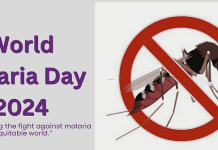The UN Chief Antonio Guterres has called on world leaders to bail out developing countries saying the economic fallout from the Coronavirus pandemic could push half a billion more into poverty.
This was said during the policy brief on the impact of COVID-19 on food security and nutrition on Tuesday.
The Chief urged the world leaders on the need to agree at an ‘Economic Rescue Package for All’ to keep poor countries and poor communities afloat, ahead of key meetings of the World Bank.
He said: “There is more than enough food in the world to feed our population of 7.8 billion people. But, today, more than 820 million people are hungry. And some 144 million children under the age of 5 are prevented from growing worldwide. Our food systems are failing, and the COVID-19 pandemic is making things worse”.

This year, over half billion extra people may fall into extreme poverty due to the COVID-19 crisis. The number of people who are acutely food or nutrition insecure will rapidly expand.
Every percentagepoint drop in global gross domestic product (GDP) means an additional 0.7 million stunted children, he said, noting that even in countries with abundant food, there are risks of disruptions in the food supply chain.
Guterres repeated the need to act now to avoid the worst impacts of global efforts to control the pandemic.
“Nations must mobilise to save lives and livelihoods, focusing attention where the risk is most acute. That means designating food and nutrition services as essential, while implementing appropriate protections for food workers, he said.”
Guterres stressed the need to preserve critical humanitarian food, livelihood and nutrition assistance to vulnerable groups and to position food in food-crisis countries to reinforce and scale up social protection systems.
Countries need to scale up support for food processing, transport and local food markets, and they must keep trade corridors open to ensure the continuous functioning of food systems, he said, adding that nations must ensure that relief and stimulus packages reach the most vulnerable, including meeting the liquidity needs of small-scale food producers and rural businesses.
He also called on nations to strengthen social protection systems for nutrition, safeguard access to safe, nutritious foods, particularly for young children, pregnant and breastfeeding women, older people and to adapt and expand social protection schemes to benefit nutritionally at-risk groups, including supporting children who no longer have access to school meals.
Looking beyond the pandemic, the Secretary-General called for transforming food systems to achieve a more inclusive and sustainable world.
We cannot forget that food systems contribute up to 29 per cent of all greenhouse gas emissions, including 44 per cent of methane, and are having a negative impact on biodiversity.
Guterres urged countries to build food systems which address the needs of both producers and workers, and to eradicate hunger by ensuring more people have access to healthy, nutritious food.
He warned that unless immediate action is taken, it is increasingly clear that there is an impending global food emergency that could have long-term impacts on hundreds of millions of children and adults.













